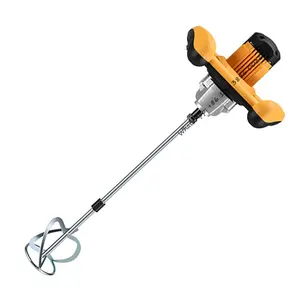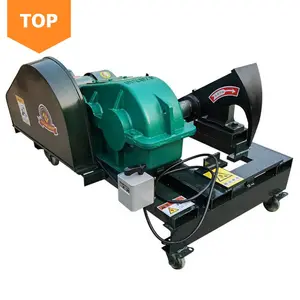Popular in your industry











































































Top categories
About 100 gallon oil tank
Understanding 100-Gallon Oil Tanks
In hydraulic systems, oil tanks serve as vital reservoirs, storing the hydraulic fluids that power a wide array of machinery across different sectors. These tanks are indispensable for ensuring a steady supply of hydraulic fluid, which is essential for the operation of pistons, cylinders, and other hydraulic components within construction, agricultural, automotive, and industrial equipment.
The configuration of oil tanks is tailored to their specific application. Automotive oil tanks, for example, are often compact with a capacity of approximately 100 gallons, whereas those used in industrial settings may be substantially larger and built to endure higher pressures. The materials chosen for oil tank construction, such as steel or reinforced plastic, are selected for their strength and resistance to corrosion, thereby safeguarding the purity of the hydraulic fluid and the tank's longevity.
An oil tank's functionality hinges on the precise management of fluid dynamics, utilizing valves and filters to regulate flow. Hydraulic pumps extract fluid from the tank, channeling it to actuators that drive the machinery. The fluid then circulates back into the tank for reuse. Regular maintenance, including inspections for leaks and filter cleanings, is critical to maintain the efficiency and extend the lifespan of the system.
Varieties of 100-Gallon Oil Tanks
The market provides an assortment of oil tanks designed to fulfill diverse requirements and operational contexts, each featuring specific attributes for its intended purpose:
-
Vertical Oil Tanks: Commonly found in both residential and commercial environments, these tanks are installed in locations such as basements or adjacent to buildings. They are versatile, capable of storing different fuel oils like heating and diesel.
-
Horizontal Oil Tanks: These tanks, which are positioned horizontally, are less prevalent than their vertical counterparts. They are suitable for scenarios where substantial storage is necessary but vertical space is constrained.
-
Underground Oil Tanks: Installed below the surface, these tanks are a common choice in commercial and industrial settings where conserving space is crucial. They can accommodate various fuel types, including heating and diesel oils.
-
Above-Ground Oil Tanks: Known as ASTs, these tanks are situated above ground and may include secondary containment measures. They are a frequent choice for residential and commercial properties where space is less of an issue.
Selecting a 100-Gallon Oil Tank
When choosing an oil tank on Alibaba.com for your enterprise, weigh several considerations that match your specific operational needs:
-
Material: The tank's construction material is a determinant of its durability and appropriateness for the environment it will be used in. Steel tanks are sturdy and suitable for high-temperature industrial settings, while aluminum tanks are lighter, making them ideal for residential or lighter commercial use.
-
Capacity: Your business's oil consumption or storage requirements should guide the capacity of the tank you select. Opting for a larger tank may occupy more space but could prove more economical over time by reducing refill frequency.
-
Design: The choice between a horizontal or vertical tank should be informed by the spatial constraints of your facility and the integration into your operations.
-
Features: Seek out additional functionalities that could enhance efficiency or safety, such as integrated containment or added insulation.
-
Regulatory Compliance: Verify that the tank adheres to all pertinent industry norms and environmental regulations to circumvent legal complications.
An astute assessment of these elements in relation to your operational demands and preferences will enable a judicious choice that upholds both efficiency and environmental stewardship.
Procuring 100-Gallon Oil Tanks on Alibaba.com
Alibaba.com emerges as a leading online marketplace for businesses in search of dependable oil storage solutions, offering a broad selection of oil tank models suitable for a variety of commercial uses. The platform's expansive network connects purchasers with global suppliers, ensuring access to a diverse inventory that meets all industry requirements and specific operational demands. Alibaba.com simplifies the search for tanks, whether for extensive fueling needs or more modest applications, by allowing users to filter options by capacity, material, features, and more.
Alibaba.com's commitment to smooth transactions is underscored by services like Trade Assurance, which safeguards your payments until delivery confirmation. This commitment extends to personalized solutions, with many suppliers on Alibaba.com providing custom options for unique needs. Additionally, with mobile-friendly purchasing and support for multiple languages, Alibaba.com caters to the varied demands of today's dynamic business landscape.
Opting for Alibaba.com as your sourcing platform signifies a partnership with a firm that prioritizes quality and customer satisfaction, offering a strategic avenue to acquire top-tier oil tanks while benefiting from competitive wholesale prices and potential bulk purchase opportunities that align with your business objectives.
Frequently Asked Questions About 100-Gallon Oil Tanks
What materials are commonly used in the construction of 100-gallon oil tanks?
Oil tanks with a 100-gallon capacity are generally crafted from materials like steel, stainless steel, or aluminum to ensure longevity and resist corrosion, which could otherwise compromise the tank's structural integrity.
How should I determine the right size oil tank for my business?
To select an appropriately sized oil tank, consider the volume of oil you need to store, the space available, and the dimensions of your machinery or equipment. It's crucial to choose a tank that accommodates your oil requirements while fitting seamlessly within your premises.
What regulations should I be aware of when acquiring an oil tank?
Indeed, there are specific regulations and safety standards that apply to oil tank purchases, which vary based on the tank's size, intended use, and installation location.
Can oil tanks be repurposed for storage beyond oil?
Although primarily intended for oil storage, certain oil tanks may be suitable for other fluids or substances. It is vital to verify the tank's specifications and compatibility with different materials before repurposing.
What are the various types of oil tanks available on the market?
The market offers a range of oil tank types, including single-wall, double-wall, and bunded tanks, each designed to meet specific containment needs, safety considerations, and oil storage requirements.
What is the recommended frequency for oil tank inspections and maintenance?
Oil tanks require routine checks for any signs of leaks, corrosion, or damage. While inspection frequency may vary, it is typically advised to perform these evaluations at least annually or biannually.
What safety measures should be considered when installing an oil tank?
When installing an oil tank, safety measures may encompass proper grounding, stable placement, and adherence to local guidelines concerning tank positioning and installation.
How can I ensure compatibility between an oil tank and my existing equipment?
To guarantee compatibility, engage directly with the supplier, providing details about your current equipment to ensure the oil tank will integrate smoothly and function effectively within your system.
What is the expected lifespan of an oil tank?
The lifespan of an oil tank can differ based on the quality of materials, maintenance frequency, and environmental conditions. Typically, double-wall tanks offer a longer service life compared to single-wall tanks.
Is it possible to customize an oil tank to meet specific business needs?
Customization options for oil tanks are often available from suppliers, allowing for adjustments in size, material selection, or additional features to suit your business's unique requirements.
How do single-wall and double-wall oil tanks differ?
Double-wall oil tanks feature an additional protective layer that can prevent leaks and environmental harm in the event of a breach in the primary tank, whereas single-wall tanks have one layer and are usually employed indoors with secondary containment as mandated by regulations.






















